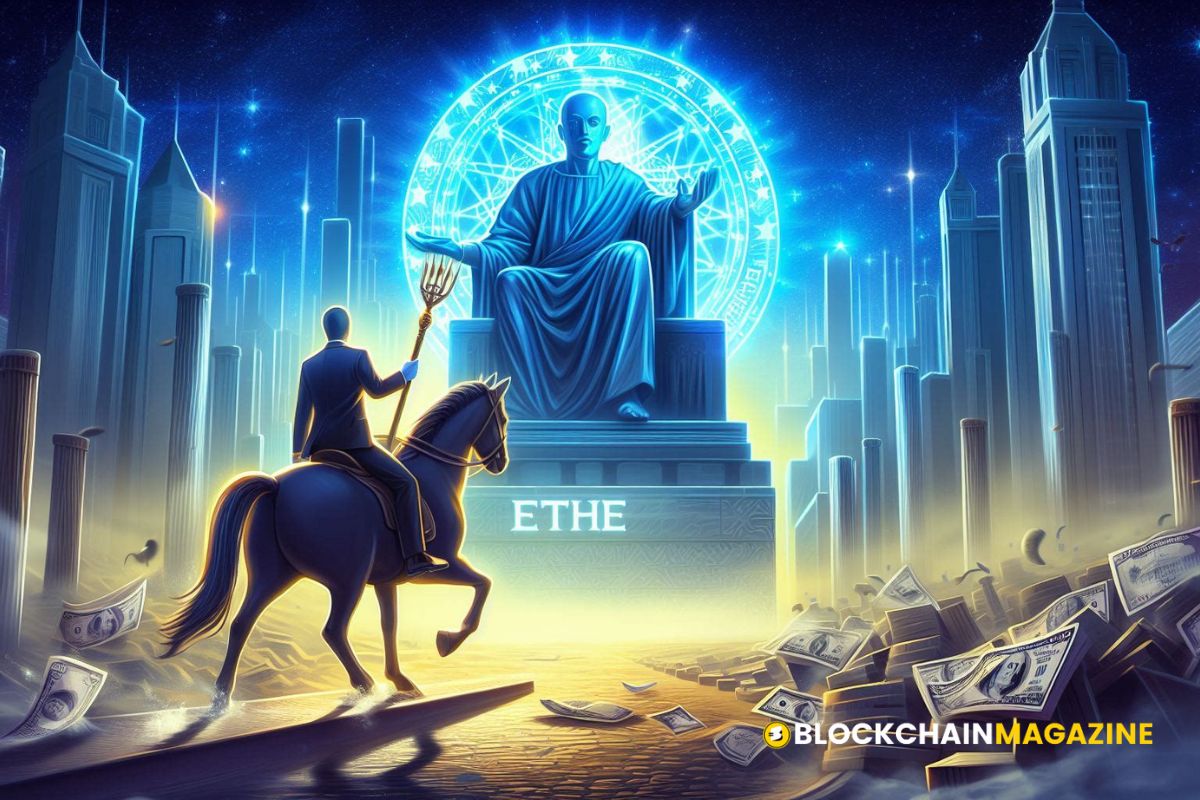Is the Metaverse Dead: Analyzing The Top 4 Astonishing Challenges It Has To face
Is the Metaverse truly dead, or is it just changing? The metaverse, a virtual space combining the real and digital worlds, has been a hot topic. Recently, though, its future has been questioned. Some tech leaders and companies still believe in it, while others are moving away. This article explores the rise and fall of the metaverse, the challenges it faces, and what might come next.
Key Takeaways
- The metaverse had a lot of excitement and money behind it at first, but interest has waned.
- Technology issues like hardware and software problems have slowed down the metaverse’s growth.
- Economic factors, including investment trends and market demand, play a big role in the metaverse’s future.
- Big tech companies have different views on the metaverse, with some still investing and others shifting focus.
- The metaverse could still evolve with new uses and better technology, but it faces many hurdles.
The Rise and Fall of the Metaverse Hype
Initial Enthusiasm and Investment
When Mark Zuckerberg announced Facebook’s rebranding to Meta in October 2021, the excitement was palpable. The idea of a new world, where augmented reality and virtual reality would merge, captured the imagination of many. Investors poured billions into metaverse-related projects, hoping to get in on the ground floor of what seemed like the next big thing. Companies across various sectors scrambled to develop their own metaverse products, even if it wasn’t clear what the metaverse actually was or why it was needed.
Key Players and Their Roles
Meta, formerly Facebook, was the most prominent player, but they weren’t alone. Companies like Epic Games, known for Fortnite, and various startups also jumped on the bandwagon. These key players aimed to create immersive, 3D, collaborative online spaces. However, despite their efforts, none managed to expand beyond niche audiences. Smart people spent lots of time on different approaches, but mainstream users didn’t see a good reason to jump through the hoops required to engage with these virtual worlds.
Public Perception and Media Coverage
Initially, the media was abuzz with stories about the metaverse. Headlines promised a future where we could hang out in virtual worlds, attend concerts, and even work in these digital spaces. But as time went on, the hype began to fade. Public interest waned, and metaverse-related inquiries died down. People weren’t spending enough time in the metaverse, and crucially, they weren’t talking about it. The metaverse, once a hot topic, became a subject of skepticism and even ridicule.
The metaverse was overhyped and could never live up to the vision. It was a passion project for some, but for most, it failed to provide the human connection and real-life experiences they craved.
Technological Challenges Facing the Metaverse
Hardware Limitations
The metaverse’s success heavily depends on advanced hardware. Current VR headsets are bulky and can cause discomfort, such as motion sickness and eyestrain. Additionally, the high cost of these devices makes them inaccessible to many people. To truly thrive, the metaverse needs more affordable and comfortable hardware solutions.
Software and Interoperability Issues
Creating a seamless metaverse experience requires different platforms to work together. However, companies often compete to “own” the metaverse, leading to interoperability issues. This lack of cooperation can hinder the development of a unified virtual world. Developers must focus on creating software that can easily integrate with various systems.
User Experience and Accessibility
For the metaverse to reach a broad audience, it must be user-friendly and accessible. This includes addressing the needs of people with disabilities and ensuring that the virtual environment is easy to navigate. User experience is crucial for retaining users and encouraging widespread adoption. Simplifying the interface and making it more intuitive can help achieve this goal.
Economic and Market Factors
Investment Trends and Financial Backing
The metaverse has seen significant investment from both private and public sectors. Initially, there was a surge in funding, driven by the potential for high returns and the novelty of the technology. However, recent trends indicate a more cautious approach. Investors are now more discerning, focusing on projects with clear, achievable goals and sustainable business models.
Market Demand and User Engagement
Market demand for metaverse platforms has fluctuated. While early adopters and tech enthusiasts showed strong interest, broader user engagement has been inconsistent. Factors such as the quality of user experience and the availability of compelling content play crucial roles in sustaining interest. Additionally, economic conditions and disposable income levels significantly impact user participation.
Impact of Economic Conditions
The economic landscape greatly influences the metaverse’s growth. During the COVID-19 pandemic, there was a notable increase in virtual activities as people sought alternatives to in-person interactions. However, the subsequent economic downturn and market volatility have led to a more cautious investment climate. The infusion of liquidity into financial systems during this period also contributed to speculative behaviors, affecting the stability of investments in the metaverse.
The Role of Major Tech Companies
Meta’s Strategic Shifts
Meta, formerly known as Facebook, has been a major player in the development of the metaverse. The company has invested heavily in virtual reality (VR) and augmented reality (AR) technologies. Meta’s strategic shifts have included rebranding and focusing on creating a more immersive digital experience. However, some experts argue that these efforts are primarily driven by the company’s desire to dominate the market and extract more data from users.
Epic Games and Other Proponents
Epic Games, the creator of Fortnite, is another significant advocate for the metaverse. The company envisions a future where virtual worlds are interconnected, allowing users to move seamlessly between different digital environments. Epic Games has been vocal about the need for open standards and interoperability to achieve this vision. Other companies, such as Roblox and Nvidia, are also contributing to the development of the metaverse, each bringing their unique strengths and perspectives.
Diverging Opinions Among Tech Leaders
There are varying opinions among tech leaders about the future of the metaverse. Some believe that it will revolutionize the way we interact with digital content, while others are more skeptical. Concerns about privacy, data security, and the potential for increased surveillance are common. Additionally, the opaque nature of massive-scale international corporations like Meta and Google makes it difficult for governments to regulate and ensure fair competition. This divergence in opinions highlights the complex and multifaceted nature of the metaverse’s development.
Potential Future Scenarios for the Metaverse
Evolution vs. Extinction
The future of the metaverse is uncertain. Some experts believe it will evolve into a fully immersive part of daily life by 2040. Others think it might not reach its full potential. The metaverse could either become a major part of our lives or fade away.
New Use Cases and Applications
The metaverse has the potential to revolutionize many areas. For example, today’s telemedicine will be raised to a much higher level by the future possibilities in the metaverse. This offers the possibility for better collaborations in healthcare, education, and entertainment. Imagine attending a virtual concert or a classroom from your living room.
Regulatory and Ethical Considerations
There are many concerns about the metaverse. Issues like privacy, data security, and mental health impacts need to be addressed. If not carefully crafted, the metaverse could make existing societal issues worse. It’s important to create rules and guidelines to protect users.
Consumer Behavior and Adoption
User Engagement and Retention
User engagement in the metaverse has seen a mix of highs and lows. Many companies have invested heavily in creating immersive experiences, but keeping users engaged remains a challenge. The novelty of virtual worlds can wear off quickly, leading to a decline in active users. Retention strategies often include regular updates, new content, and community-building activities to keep the user base interested.
Barriers to Widespread Adoption
Several factors hinder the widespread adoption of the metaverse. One major barrier is the high cost of entry. Quality VR headsets and compatible hardware can be expensive, making it less accessible to the average consumer. Additionally, there are social and psychological barriers. Some people find it hard to imagine living in an augmented world, especially when it involves constantly switching between different identities and avatars.
Comparisons to Other Technologies
When compared to other technologies, the metaverse faces unique challenges. Unlike mobile or desktop platforms, the metaverse requires a more significant investment in both time and money. However, it also offers unique opportunities for immersive experiences that other platforms can’t match. The success of the metaverse may depend on how well it can integrate with existing technologies and how easily users can transition between different virtual environments.
The Metaverse in Popular Culture
Representation in Media and Entertainment
The metaverse has been a hot topic in media and entertainment. From movies to TV shows, the idea of a virtual world where people can live out their fantasies has captured the public’s imagination. Neal Stephenson’s “Snow Crash” coined the term “metaverse,” presenting it as a complex realm where individuals create digital avatars to inhabit a parallel virtual world. This concept has been explored in various forms of media, making the metaverse a household name.
Public Sentiment and Memes
Public sentiment about the metaverse is mixed. Some people are excited about the possibilities, while others are skeptical. Memes about the metaverse often highlight its potential pitfalls, such as privacy concerns and the risk of becoming too detached from reality. These memes serve as a form of social commentary, reflecting the public’s ambivalence towards this emerging technology.
Influence on Other Digital Trends
The metaverse has influenced other digital trends, such as augmented reality (AR) and virtual reality (VR). These technologies are becoming more mainstream, thanks in part to the hype surrounding the metaverse. As more people become familiar with AR and VR, the line between the physical and digital worlds continues to blur, leading to new possibilities and challenges.
Conclusion
In conclusion, the metaverse is not dead, but it is certainly in a state of flux. While initial excitement has waned and some companies have shifted their focus, the potential for virtual reality and immersive experiences remains significant. The journey to a fully realized metaverse is complex and will require time, investment, and widespread acceptance. As technology evolves and new use cases emerge, the metaverse may yet find its place in our digital future. For now, it is a concept that continues to evolve, reflecting the ever-changing landscape of technology and human interaction.
Frequently Asked Questions
What is the metaverse?
The metaverse is a virtual world where digital and physical realities blend. It includes virtual reality (VR), augmented reality (AR), and the internet.
Is the metaverse dead?
The metaverse is not dead, but its popularity has decreased. Some believe it is evolving, while others think it may fade away.
Why did the metaverse lose popularity?
The metaverse lost popularity due to high costs, technical challenges, and low user engagement. Many people found it hard to use and didn’t see its value.
What are the main challenges for the metaverse?
The metaverse faces technological challenges like hardware limitations, software issues, and user experience problems. Economic factors and market demand also play a role.
Which companies are involved in the metaverse?
Major companies like Meta (formerly Facebook), Epic Games, and other tech giants have invested in the metaverse. However, their commitment varies.
What could the future hold for the metaverse?
The future of the metaverse could go either way. It might evolve with new uses and better technology, or it could become less relevant if challenges aren’t addressed.
Stay informed with daily updates from Blockchain Magazine on Google News. Click here to follow us and mark as favorite: [Blockchain Magazine on Google News].
Get Blockchain Insights In Inbox
Stay ahead of the curve with expert analysis and market updates.
latest from tech
Disclaimer: Any post shared by a third-party agency are sponsored and Blockchain Magazine has no views on any such posts. The views and opinions expressed in this post are those of the clients and do not necessarily reflect the official policy or position of Blockchain Magazine. The information provided in this post is for informational purposes only and should not be considered as financial, investment, or professional advice. Blockchain Magazine does not endorse or promote any specific products, services, or companies mentioned in this posts. Readers are encouraged to conduct their own research and consult with a qualified professional before making any financial decisions.

 Bitcoin
Bitcoin  Ethereum
Ethereum  Tether
Tether  XRP
XRP  Solana
Solana  Dogecoin
Dogecoin  USDC
USDC  Lido Staked Ether
Lido Staked Ether  Cardano
Cardano  TRON
TRON  Avalanche
Avalanche  Chainlink
Chainlink  Wrapped stETH
Wrapped stETH  Toncoin
Toncoin  Sui
Sui  Shiba Inu
Shiba Inu  Wrapped Bitcoin
Wrapped Bitcoin  Stellar
Stellar  Polkadot
Polkadot  Hyperliquid
Hyperliquid  Hedera
Hedera  WETH
WETH  Bitcoin Cash
Bitcoin Cash  LEO Token
LEO Token  Uniswap
Uniswap  Litecoin
Litecoin  Pepe
Pepe  Wrapped eETH
Wrapped eETH  NEAR Protocol
NEAR Protocol  Ethena USDe
Ethena USDe  Aptos
Aptos  USDS
USDS  Internet Computer
Internet Computer  Aave
Aave  Cronos
Cronos  POL (ex-MATIC)
POL (ex-MATIC)  Mantle
Mantle  Ethereum Classic
Ethereum Classic  Render
Render  MANTRA
MANTRA  Monero
Monero  WhiteBIT Coin
WhiteBIT Coin  Bittensor
Bittensor  Dai
Dai  Artificial Superintelligence Alliance
Artificial Superintelligence Alliance  Arbitrum
Arbitrum  Ethena
Ethena 



